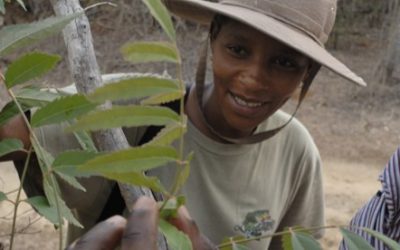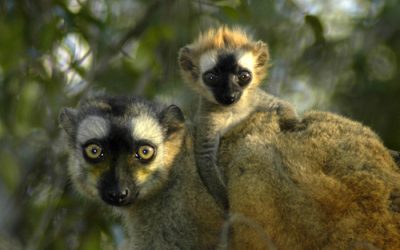A dynamic TBA training team has been showing natural resource managers in Liberia how they can measure the benefits of a healthy natural environment: a key factor to support sustainable development.
Director Rosie Trevelyan introduced TESSA (the user-friendly name for the Toolkit for Ecosystem Services for Site-based Assessments) to staff working for the country’s national institutions, civil society and local government. TESSA, enables non-specialists to evaluate ecosystem services on a site-based scale, where local decisions are made.
Leading a team of trainers, Rosie ran the four-day workshop at the request of the UN Environment’s programme on the Economics of Ecosystems and Biodiversity (TEEB), hosted by Liberia’s Environmental Protection Agency (EPA).
Thomas Declercq, who is technical advisor for TEEB, said: “This was by far the most useful workshop we [TEEB] have had in Liberia.”
TBA alumnus Patrick Mbosso joined Rosie as a core teacher. Patrick attended the TBA’s first TESSA training workshops in Africa in 2015, and is now successfully using the toolkit in Cameroon.
Patrick drew on his experience as a pioneer trainee and user of TESSA to teach others and share his results. The third teacher was Abisha Mapendembe from the UN Environment Programme World Conservation Monitoring Centre.
The training focused on how to identify ecosystem services and how to use TESSA to measure them. Crucially, TESSA guides users in predicting how changes in land management might impact the range of benefits that people currently gain from a site. The course finished by showing how to communicate complex results in a meaningful way to stakeholders and policy makers.
The TBA was one of six partners who developed TESSA, which is now being used globally and is generating useful results. The workshop in Liberia means that TESSA has reached a new group of users where it can have impact on the ground. “There was a huge interest in learning about easy and accessible ways to measure ecosystem services in a meaningful and relevant way,” said Rosie. “I think the workshop fulfilled this purpose.
“By the end, people were talking enthusiastically about applying TESSA in sites where they are working, and showing that they had the confidence to do this.”
The participants came from
- National institutions: Environmental Protection Agency, Forestry Development Authority, Ministry of Agriculture, Bureau of National Fisheries (BNF)
- Civil society: The Society for the Conservation of Nature of Liberia (SCNL), Conservation International (CI), FACE, Agriculture College Monrovia, Environmental Justice Foundation (EJF), independent consultants
- Local government: Lake Piso Multiple Reserve, Mayor of Robertsport




